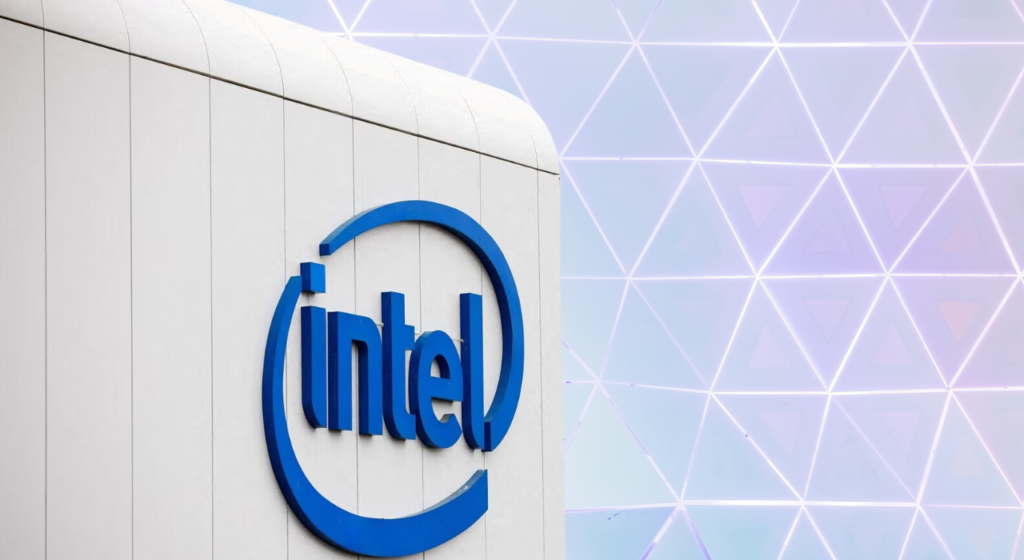Israel has approved a .2 billion grant for Intel Corp to support the construction of a new billion chip plant in southern Israel. This marks the largest investment ever made by a company in the country. The agreement, announced on Tuesday, highlights a significant show of support from a major U.S. company during a challenging time for Israel, as it remains engaged in a conflict with the Palestinian militant group Hamas since the October 7 attack. The generous offer from Israel’s government comes amidst increased pressure from Washington for Israel to take steps to minimize civilian harm in Gaza.
Intel’s shares saw a 1.9% increase, reaching .90 in pre-market Nasdaq trading. The expansion plan for the Kiryat Gat site, located 42 km (26 miles) from Hamas-controlled Gaza, is a crucial element of Intel’s strategy to enhance its global supply chain resilience. This initiative aligns with Intel’s broader manufacturing investments in Europe and the United States, reflecting the company’s commitment to maintaining a robust presence in key regions.
Led by CEO Pat Gelsinger, Intel has dedicated billions to establish factories across three continents, aiming to reclaim its leadership in chip-making and effectively compete with AMD, Nvidia, and Samsung. The newly announced Israeli plant stands as the latest testament to Intel’s ongoing investments in strategic locations worldwide.
Intel has unveiled ambitious plans to allocate over 30 billion euros (equivalent to billion) for the development of two chip-manufacturing plants in Magdeburg. This move is a key component of Intel’s extensive multi-billion-dollar investment initiative across Europe, aimed at bolstering its chip capacity. The commitment has garnered substantial support from Berlin, which has pledged substantial subsidies, making it Germany’s largest-ever foreign investment.
In 2022, Intel had already announced a hefty investment of up to 0 billion for the construction of what could potentially be the world’s largest chip-making complex in Ohio. Notably, industry giants Samsung and Taiwan Semiconductor Manufacturing Co (TSMC) have also revealed substantial investment plans in the United States.
Meanwhile, Israel’s finance and economy ministries have expressed their satisfaction with Intel’s investment, highlighting its significance, particularly given the current global competition to attract substantial investments in the chip industry. This move by Intel is viewed as a substantial vote of confidence in Israel’s economy, especially considering the broader context of intense global competition for significant investments in the chip sector.
The Israeli government emphasized that Intel’s investment carries substantial direct fiscal benefits for the country, surpassing the value of the state’s grant. Finance Minister Bezalel Smotrich expressed the sentiment that this investment holds special significance, coming at a time when Israel is contending with profound challenges. He characterized it as an investment in values that champion progress for humanity, aligning with the ongoing struggle for what is deemed right and righteous.
In addition to the grant, constituting 12.8% of the total investment, Intel has committed to a substantial procurement initiative. The chipmaker has pledged to purchase goods and services totaling 60 billion shekels (.6 billion) from Israeli suppliers over the next decade. This commitment is expected to foster economic growth and stability in the region. Moreover, the establishment of the new facility is anticipated to generate several thousand jobs, further contributing to the economic development of the local community.
Intel has been a significant player in Israel since establishing its presence in 1974. Presently, the company operates four development and production sites across the country, including the Fab 28 manufacturing plant in Kiryat Gat. This facility is responsible for producing Intel 7 technology, specifically 10-nanometer chips. Intel’s operations in Israel employ nearly 12,000 people directly, with an additional indirect employment impact on approximately 42,000 more individuals.
Intel’s exports from Israel contribute substantially to the country’s high-tech sector, totaling around billion and representing 5.5% of the total high-tech exports. The company, being one of approximately 500 multinationals in Israel, made a significant acquisition in 2017 by purchasing the Israeli self-driving auto technologies firm Mobileye for .3 billion.
While Intel has confirmed the construction of a new facility, Fab 38, the specific technology to be produced at this plant remains undisclosed. Construction has already commenced, according to Intel. In June, Prime Minister Benjamin Netanyahu had previously announced Intel’s plans to build a new $25 billion chip plant in Israel, but Intel had refrained from officially confirming the investment until now.
The Fab 38 plant is scheduled to commence operations in 2028 and continue its activities through 2035. This timeframe reflects Intel’s long-term commitment to its investment in Israel, signifying a strategic outlook that extends over the next decade and a half. The opening of Fab 38 aligns with Intel’s ongoing efforts to strengthen its global manufacturing capabilities and contribute to the advancement of semiconductor technology. The plant’s operation through 2035 underscores Intel’s confidence in the continued growth and innovation within the semiconductor industry during this extended period.
